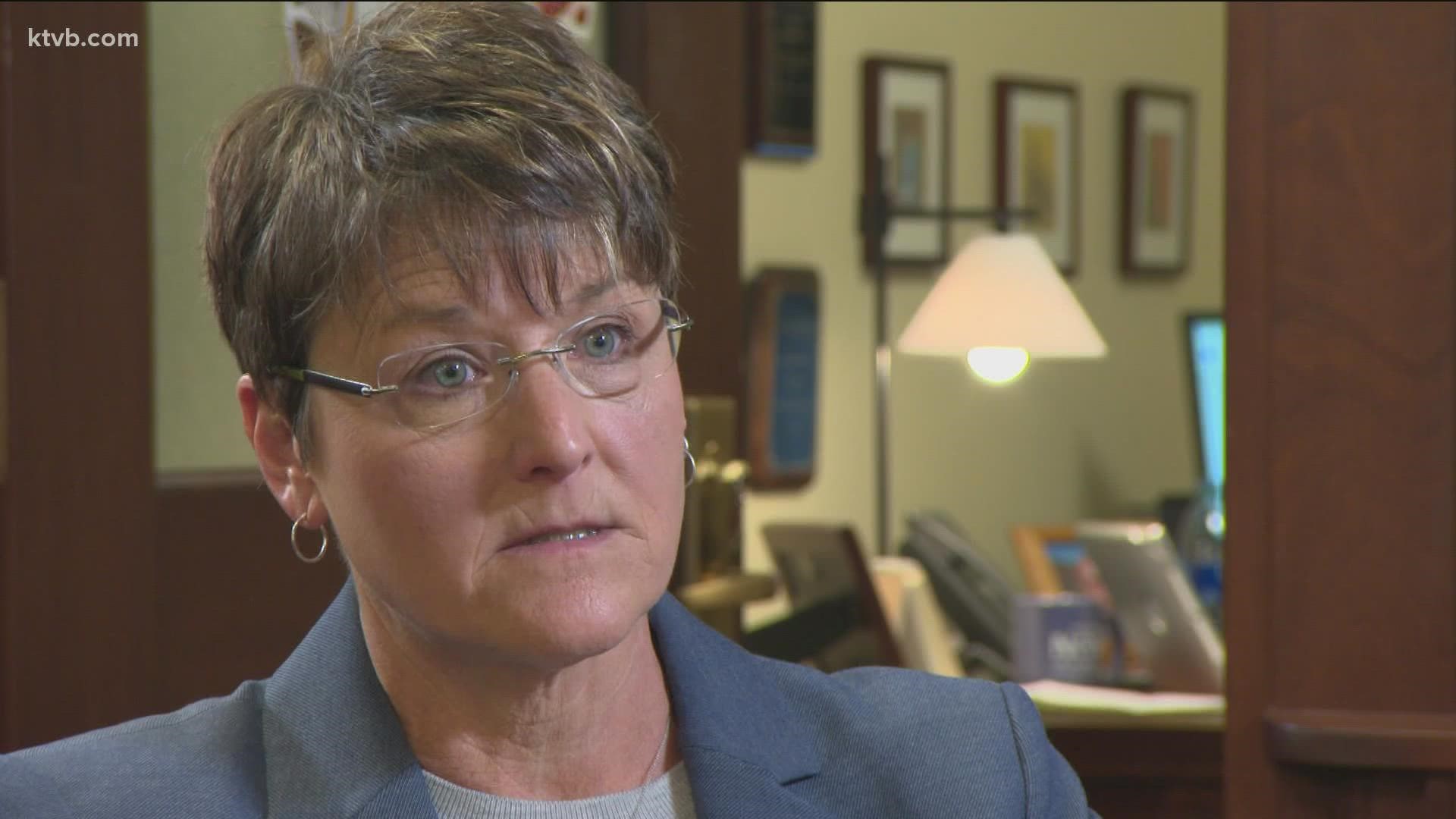BOISE, Idaho — Community advocates continue to speak out after the trial of former Idaho Rep. Aaron von Ehlinger, who was found guilty on April 29 of raping a legislative intern in 2021.
State Sen. Melissa Wintrow, D-Boise, a noted advocate for survivors of sexual violence, said lawmakers have a lot to think about when considering the last year.
“When I saw the verdict, I didn't know quite how to feel. I wasn't convinced that there was justice. I wasn't convinced that, you know, I was happy. I mean, it was a sad day. The one thing I did feel was a little bit of relief that the victim's voice was validated. But the biggest thing I thought about is my role as a legislator,” Wintrow said.
The senator said lawmakers are "not off the hook" when it comes to the Jane Doe situation.
“There were plenty of warning signs of his behavior, plenty of conversations. What could we have done? All of us who witnessed it, to confront it and hold him accountable. And I think we should have expectations for that. And the legislature should be required to have a best-practice policy to prevent and deal with harassment in the workplace, period. That is our responsibility. That is our responsibility to each other and the taxpayers,” Wintrow said.
Notably in court last week, Jane Doe left the stand during her testimony saying, “I can't do this.” That event started a community conversation about what could be done to prevent a similar situation, or at least make it more manageable in situations where a survivor is retraumatized over and over. Wintrow said she and some of her colleagues have talked about changes they can make.
“The average time between report and arrest for a sexual assault, for example, according to one study, was about 88 days. Almost three months. In that time of the investigation, there is no protection for the person who's been harmed from the person that harmed them if it's a sexual assault. If you have a domestic violence or an intimate partner relationship, you can seek a protection order. But our law does not allow for that if you're not in an intimate relationship. So, in this case Jane Doe could not seek a protection order because of the law. And in the past several months, I've received three phone calls from women who want to get protection orders. And the judges say, 'well, I can't because the law won't allow me,'” Wintrow said.
Senator Wintrow said she wanted to look back at legislation that failed in 2020.
“I actually worked very hard with many stakeholders to provide legislation for a civil protection order for sexual assault survivors. I had the support from prosecutors, defense attorneys, law enforcement advocates, victims -- you name it. I couldn't get it out of committee. I want us to go back to that legislation and we need to pass it. If there is one thing we could have done for her and many other survivors of sexual assault, if we really want to help people, allow them to get a protection order, and all we have to do is change the law to provide that opportunity,” Wintrow said.
Attention is again being drawn to the House ethics committee hearing that involved Jane Doe testifying behind a black curtain about her interaction with von Ehlinger. The committee found that von Ehlinger's behavior was unbecoming of a lawmaker. However, they made this clear: They were not there to find a crime. Doe was traumatized in real time as she testified as the general public, media, and lawmakers watched. A reporter and some other people watching the hearing then chased Doe through the Capitol, traumatizing her again.
“The thing that we don't do well as a culture and as a system is center voices of people being harmed. We talk a good game that we do that, but what does it truly mean to center the voice of somebody who's been victimized? It means that we listen to what their experience is and that we are willing to take action to adjust a system or behavior based on that information,” Wintrow said.
In 2023, Wintrow plans on pushing lawmakers to take on the topic and to take up changes.
“I do think some of the gaps that exist could be filled, and some of those things I think are about creating strict confidentiality process in there, accountability for any member who is acting outside of expectations. Making sure that we follow the rules we have. In this case, we actually had rules that that would protect a third party from harm. Well, in this case, the victim was a third party, but we still put her in a public venue. We wouldn't have had to do that. We do have a committee, a joint committee that was supposed to convene last session but didn't. So, I will work with my colleagues to encourage support, make sure we are convening and really try to create best practice process,” Wintrow said.
Join 'The 208' conversation:
- Text us at (208) 321-5614
- E-mail us at the208@ktvb.com
- Join our The 208 Facebook group: https://www.facebook.com/groups/the208KTVB/
- Follow us on Twitter: @the208KTVB or tweet #the208 and #SoIdaho
- Follow us on Instagram: @the208KTVB
- Bookmark our landing page: /the-208
- Still reading this list? We're on YouTube, too:

